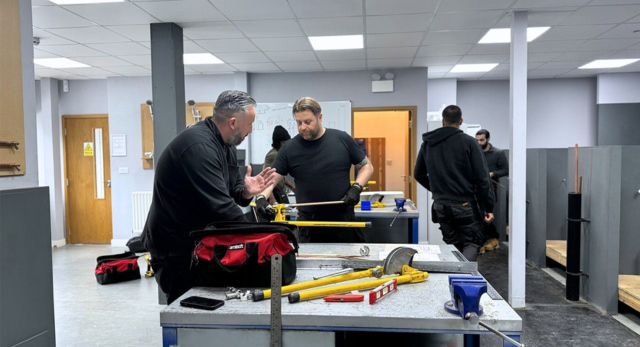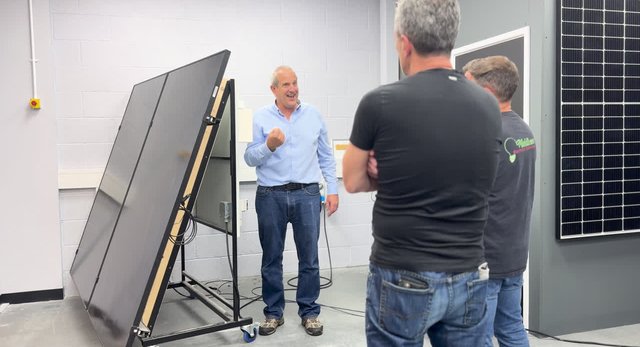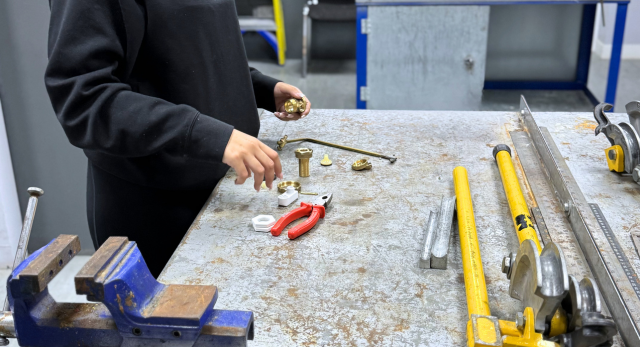Thinking about retraining as a plumber in 2026? Whether you’re fed up with the 9-to-5 grind, looking for a more hands-on career, or simply want to future-proof your income, plumbing is a solid choice. At Logic4training, we’ve helped thousands of people from all walks of life make the leap into plumbing. This article answers the most common questions about retraining as a plumber, including how to get started, how long it takes, what it costs, and why age is just a number (yes, even if you’re 40 or beyond).
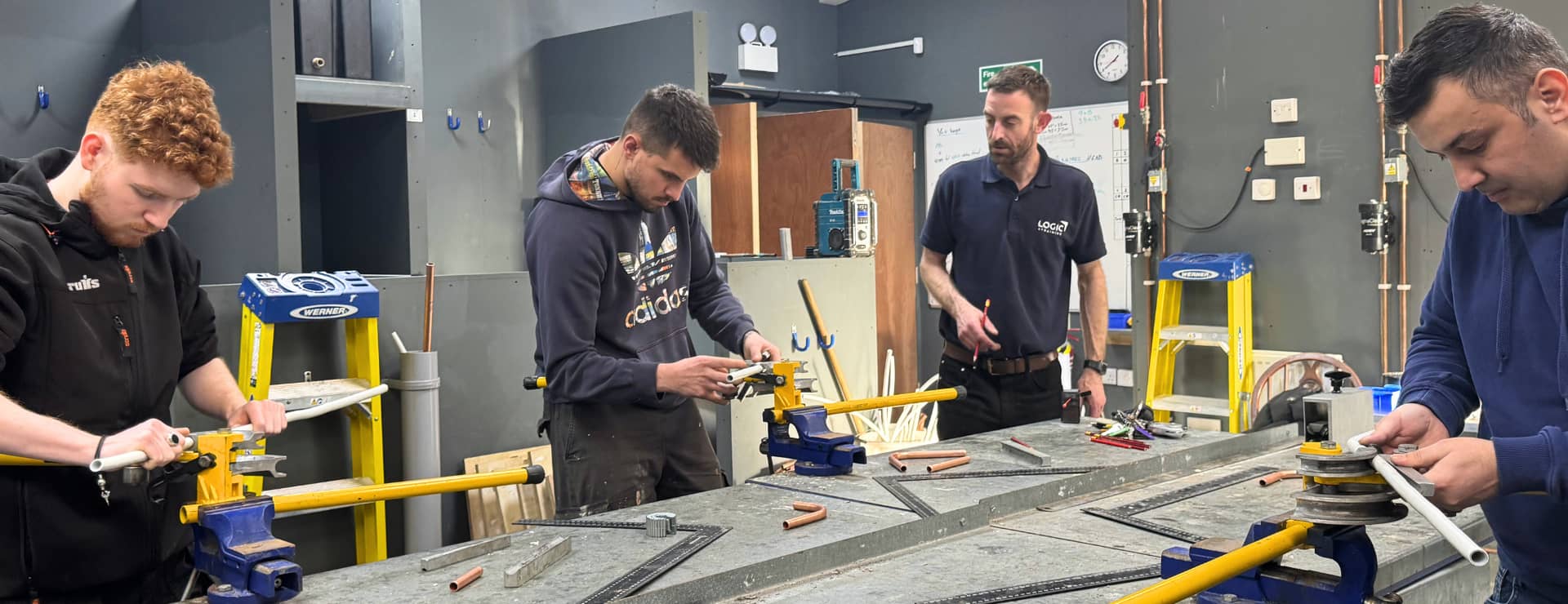
Why Retrain as a Plumber in 2026?
Plumbing isn’t just about fixing leaky taps. It’s a career with real prospects, job security, and the chance to be your own boss. Here’s why more people are swapping their office chairs for pipe wrenches:
- High demand: The UK is facing a shortage of skilled tradespeople, especially plumbers. New builds, renovations, and the shift to low-carbon heating mean more work than ever.
- Excellent earning potential: Experienced plumbers can earn £30,000-£40,000+ per year, with self-employed specialists earning even more.
- Flexible career paths: Work on domestic jobs, commercial sites, or specialise in renewables (think heat pumps and solar).
- Job satisfaction: Solve real problems, work with your hands, and see the results of your graft every day.
How to Retrain as a Plumber: Your Options
There’s no one-size-fits-all route into plumbing. The best path depends on your age, experience, and how quickly you want to qualify. Here’s the lowdown:
1. Plumbing Courses (Beginner to Advanced)
For career changers, a structured plumbing course is the fastest way to gain skills. At Logic4training, our plumbing courses are designed for anyone with no prior experience needed. You’ll learn everything from the basics of pipework to advanced systems and regulations.
-
-
- Level 2 Diploma in Plumbing: The industry standard for starting out. Covers domestic plumbing, health and safety, and practical skills.
- Level 2 & 3 NVQs: For those wanting to progress to more complex work or supervisory roles.
-
2. Plumbing Apprenticeships
Apprenticeships aren’t just for school leavers! Anyone can apply, including those over 40. You’ll work with a qualified plumber while studying towards a recognised qualification, usually an NVQ Level 2 or 3. It’s a longer route (typically 2-4 years), but you’ll earn as you learn and gain invaluable hands-on experience.
3. On-the-Job Training / Plumber’s Mate
Some people start as a plumber’s mate, picking up skills on the job. While this gives you real-world experience, you’ll still need formal qualifications to progress and maximise your earning potential. We recommend combining this route with a recognised course.
4. Online or Blended Courses
Whilst we have mentioned these, we strongly advise against online or blended courses. For those wondering, blended courses are courses where a percentage of your course is online and the rest is in-centre (usually the theory online). Whilst these sound great as you can “learn at your own pace”, they are often misleading, and most people don’t actually finish the online theory training.
Please be very cautious with these courses and you can read our online learning vs in-person training in the trades article for an in-depth breakdown of the risks involved with these types of courses.
How Long Does It Take to Retrain as a Plumber?
The answer depends on your chosen route and personal circumstances:
| Route | Typical Duration | Who’s it for? |
|---|---|---|
| Fast-Track Plumbing Course | 6-16 weeks (full-time) | Career changers, adults, those in a hurry. |
| Part-Time Plumbing Course | 6-12 months | Those working alongside training. |
| Apprenticeship | 2-4 years | School leavers, adults wanting to earn as they learn. |
| On-the-Job (Plumber’s Mate) + Courses | Varies | Those with industry contacts, hands-on learners. |
At Logic4training, you can complete our plumbing course in 6 weeks full-time, or spread it out part-time and complete it over the weekends to fit around your life.
- If you want to add gas qualifications, expect at least 10 months from start to Gas Safe registration, including mandatory waiting periods and time for your gas portfolio.
- Apprenticeships take longer (2-4 years), but you’ll be earning throughout.
Check out our article for a detailed breakdown of how long it takes to become a plumber.
How Much Does It Cost to Retrain as a Plumber?
Let’s talk numbers. The cost of retraining varies depending on the route and provider:
- Training courses: These depend on the training provider, and if you’re looking to upskill into gas. You’re looking at £2,5000-£6,000. This covers training, materials, and assessment fees.
- Higher qualifications (e.g. level 2 or 3 NVQs ): Additional £1,000-£3,000.
- Apprenticeships: Usually free for the trainee (funded by the government/employer), but you’ll earn a lower wage during training.
- On-the-job (plumber’s mate): Minimal upfront cost, but you’ll need to invest in formal training to progress.
At Logic4training, we offer flexible payment plans and finance options to help spread the cost. Check out our plumbing course prices and packages for the latest deals.
Retrain as a Plumber at 40 (or 50, or 60…)
Worried you’ve missed the boat? Don’t be. The average age of career changers in plumbing is rising, and mature trainees bring life experience, reliability, and people skills that clients love.
- No upper age limit: Anyone can retrain, and apprenticeships are open to all ages.
- Transferable skills: Project management, customer service, and problem-solving are all valuable in plumbing.
- Flexible training: Many courses are designed for adults, with evening, weekend, and part-time options.
- Demand for mature plumbers: Homeowners often prefer experienced, trustworthy tradespeople.
At Logic4training, we’ve helped people of all ages. We have helped retrain individuals aged 40, 50, and beyond. Read our case studies to see what’s possible.
What Qualifications Do You Need to Become a Plumber?
To work as a domestic plumber in the UK, you’ll first need to achieve a Level 2 Diploma in Plumbing, typically awarded by City & Guilds or LCL Awards. This qualification is considered the essential starting point for anyone entering the trade, as it covers the fundamental skills and knowledge required for domestic plumbing work. For those aiming to progress further, particularly if you want to work on construction sites or take on more advanced roles, obtaining an NVQ Level 2 or higher is necessary. These qualifications demonstrate your competence in practical, real-world settings and are often required by employers for on-site work.
If your goal is to work with gas appliances, such as boilers or central heating systems, you must also complete a Gas Managed Learning Programme and subsequently register with Gas Safe. This is a legal requirement in the UK and ensures you’re qualified to safely install, maintain, and repair gas systems.
Beyond these core qualifications, there are additional certificates available for those who wish to specialise further. For example, if you want to work with renewable technologies like heat pumps, or handle unvented hot water systems, you’ll need to undertake further training and earn specific certifications in those areas.
Check out our article for a detailed breakdown of the qualifications you need to be a plumber.
What’s the Job Like? A Day in the Life
Plumbing is varied, practical, and never dull. Here’s what you might get up to:
- Installing and repairing pipes, taps, toilets, and heating systems
- Diagnosing leaks and blockages (and yes, sometimes getting your hands dirty)
- Fitting new bathrooms and kitchens
- Working in homes, offices, schools, or construction sites
- Advising customers on energy efficiency and new technologies (like heat pumps)
You’ll need problem-solving skills, a good head for maths, and the ability to keep calm under pressure. But don’t worry, our courses cover all the technical and soft skills you’ll need.
You can find our full breakdown of what plumbers get up to on a daily basis in our Plumbing Jobs: Everything You Need to Know About Them
article
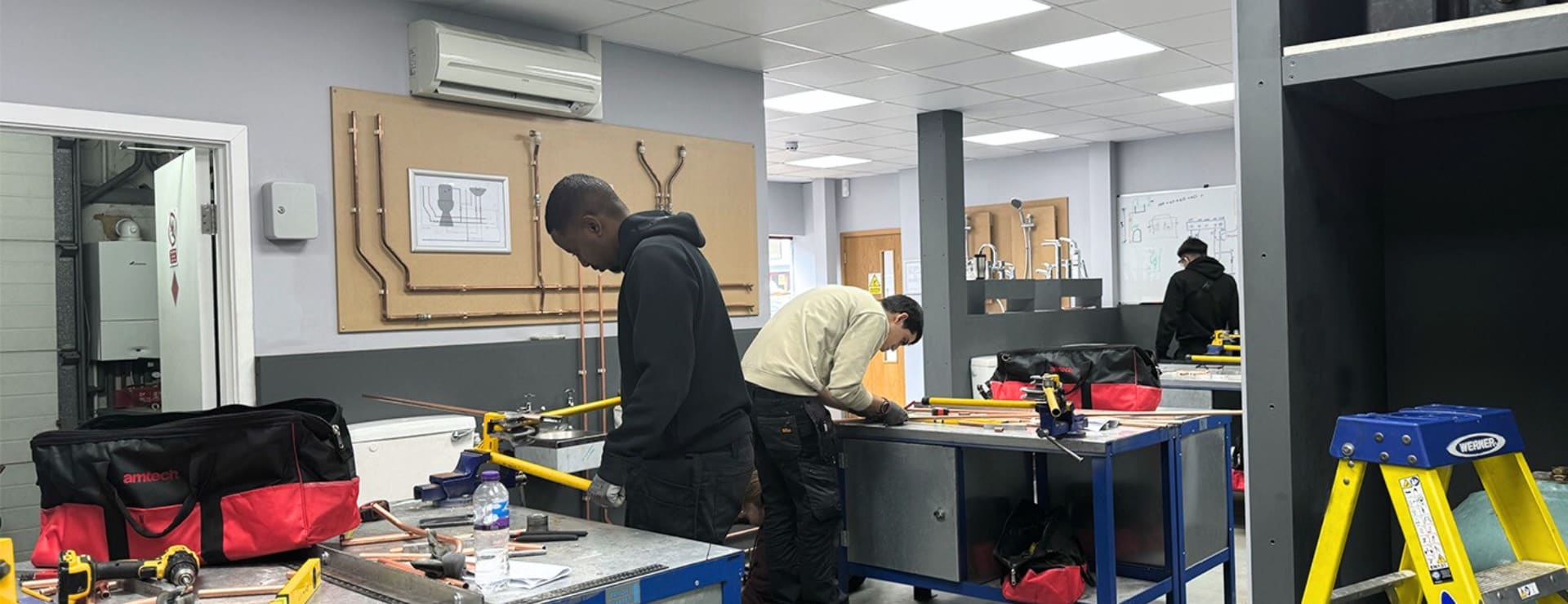
The Logic4training Advantage: Why Train With Us?
We’re not your average training provider. Here’s what sets Logic4training apart:
- Industry expertise: Over 23 years’ experience training the UK’s plumbers, gas engineers, and heating specialists.
- Trusted training provider: We have trained plumbers for some of the UK’s biggest companies.
- Flexible learning: Full-time and part-time options are available to suit your lifestyle.
- State-of-the-art facilities: Our training facilities are clean, modern and the optimal training environment for plumbers.
- Hands-on training: Realistic workshops, experienced tutors, and practical assessments.
- Career support: Help with CVs, job hunting, and even starting your own business.
- Recognised qualifications: All courses accredited by LCL Awards, City & Guilds and other leading bodies.
- Gas Engineer Software: Our partnership with Gas Engineer Software offers you discounted software packages to streamline your administrative tasks.
Don’t just take our word for it. Watch what some of our plumbing students had to say in their testimonials, or check out our reviews on Trustpilot or Google.
How to Get Started: Step-by-Step
Research your options: Read up on the different routes, and decide which fits your circumstances.
- Book an open day: Get a feel for the training environment and meet our expert tutors.
- Choose your package: Whether it’s plumbing or plumbing and gas, we’ll help you pick the right one.
- Get qualified: Attend your course, complete your assessments, and build your portfolio.
- Find work or go self-employed: With your new skills and qualifications, the world’s your oyster.
Ready to take the plunge? Contact Logic4training for a friendly chat about your options.
FAQ
What are the different routes into plumbing for career changers?
There are several ways to enter the plumbing trade, even if you’re switching careers later in life. You can enrol on a full-time or part-time course, such as a Level 2 or Level 3 Diploma in Plumbing Studies, which is ideal if you’re not already working in the industry. Alternatively, private training providers offer intensive Level 2 Diplomas in Plumbing that are suited to adult learners looking for flexibility. Apprenticeships provide hands-on experience and a wage while you train, and are open to people of any age. Some also start as a plumber’s mate or assistant, gaining practical skills on the job before progressing to formal qualifications.
How important is practical experience when training to become a plumber?
Practical, on-the-job experience is absolutely crucial for anyone looking to become a fully qualified plumber. While classroom-based courses provide essential theory and foundational skills, working alongside an experienced professional allows you to develop real-world problem-solving abilities, confidence, and competence. This hands-on experience is also a requirement for completing NVQ qualifications and is highly valued by employers and clients alike.
Are there any age or physical requirements for becoming a plumber?
There is no upper age limit for plumbing apprenticeships or training courses, so it’s never too late to retrain. However, plumbing is a physically demanding job, so you’ll need to demonstrate a reasonable level of fitness and manual dexterity. Mature learners are often valued for their reliability, life experience, and customer service skills, which can be a real asset in the trade.
What should I look for in a plumbing training provider?
Choosing the right training provider is essential for your success. Look for reputable organisations that offer recognised qualifications (such as City & Guilds, LCL Awards or other reputable awarding bodies), experienced tutors with industry backgrounds, and opportunities for hands-on learning. It’s wise to avoid providers making unrealistic promises about quick qualifications without practical experience, as these rarely deliver the skills needed for a long-term career. Research reviews, ask about success rates, and check whether they offer support with work placements or job hunting after you qualify.
Can previous experience in another trade help with retraining as a plumber?
Yes, if you have a background in a related construction trade, such as electrics, bricklaying, or general building, you’ll already have some transferable skills and a basic understanding of site safety and working practices. This can make the transition smoother and may even shorten your training time, as you’ll be familiar with tools, regulations, and the expectations of working on-site.
